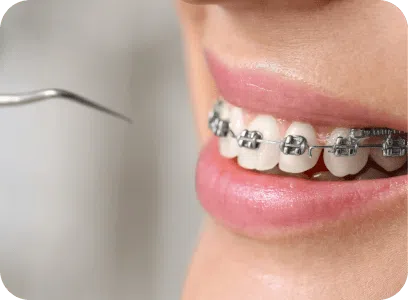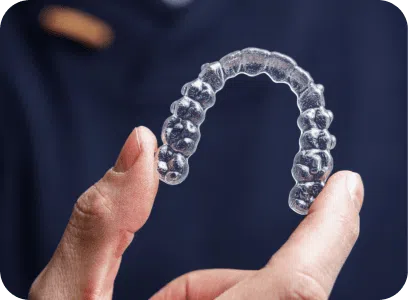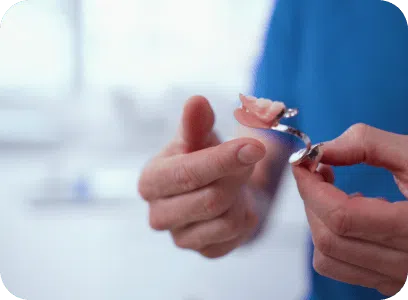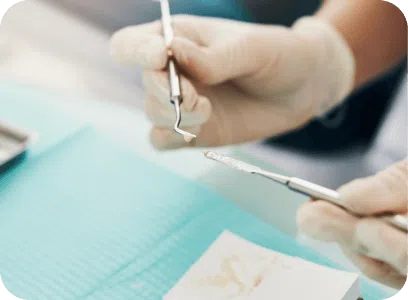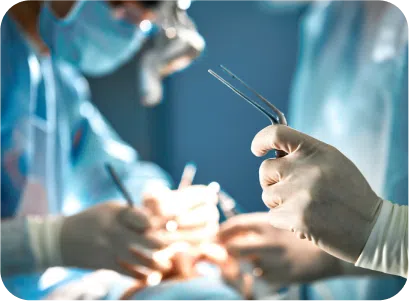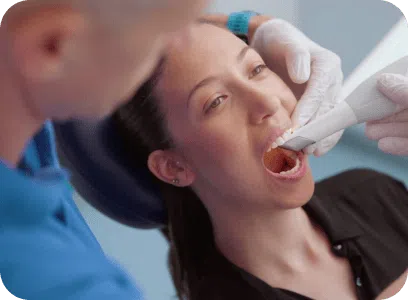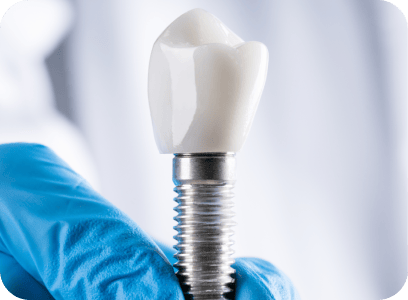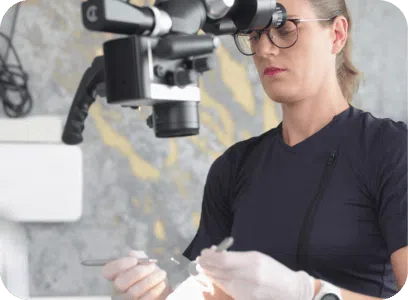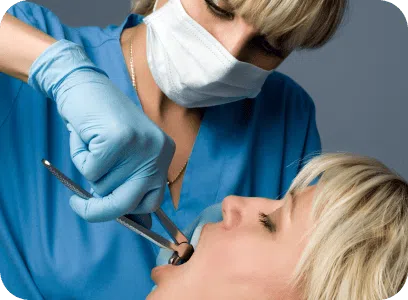Periodontology
Chronic gum inflammation can progress to periodontal disease or periodontitis, where pockets form around the teeth, accumulating more plaque and dental calculus at a faster rate.
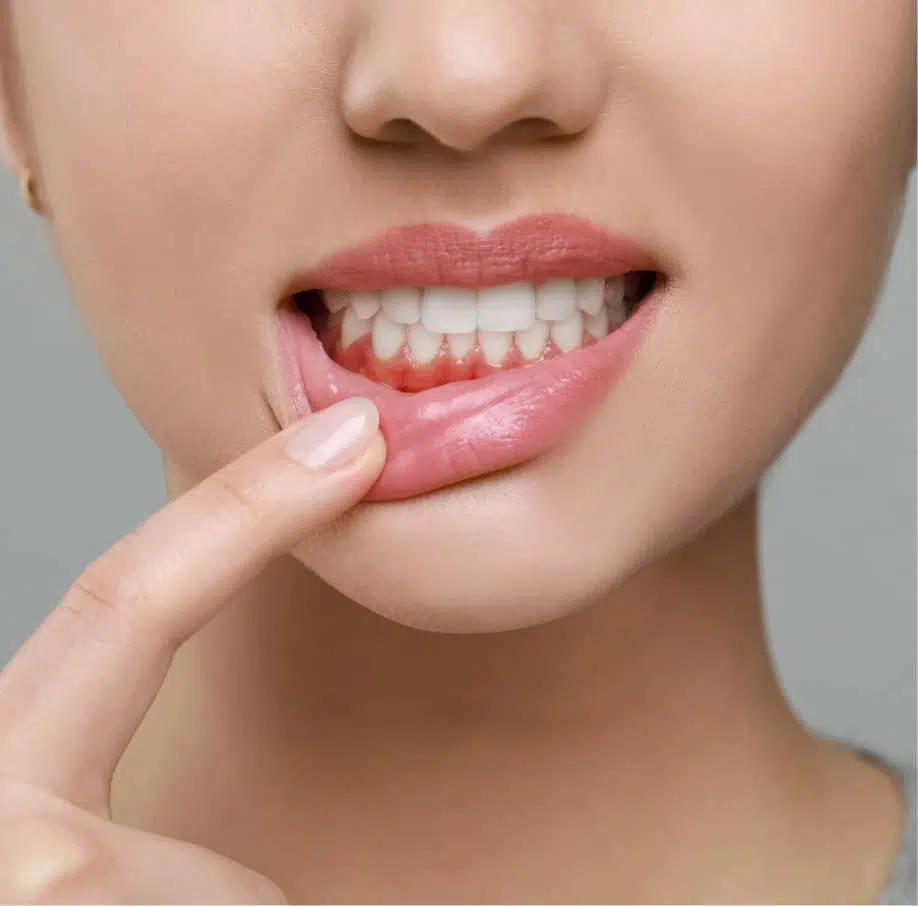
Experienced professionals
Our experienced team of periodontologists, specializing in the treatment of gum diseases and periodontal conditions, will provide effective diagnosis and treatment with their expertise and experience.
Comprehensive care
Periodontal issues can negatively impact overall oral health, so we focus on comprehensive care that includes appropriate diagnosis, treatment, and preventive measures to prevent recurrence.
Modern technology
We use advanced methods and technology to treat periodontal issues, ensuring precise and successful treatments. This guarantees better results and shorter recovery periods.
Causes of disease
The disease is a sign of improper or insufficient oral hygiene, resulting in the mineralization of residual soft deposits (food and bacteria) on the teeth. This leads to the formation of tartar, one of the main causes of disease progression. There are several factors that contribute to the worsening of periodontal disease, one of which is smoking.
Stages of the disease
In the early stage (gingivitis), the gums are inflamed, red, and swollen. If gingivitis is not treated in time, the inflammation can spread to adjacent tissues. Over the years, the tissues around the teeth that stabilize them begin to deteriorate, leading to tooth mobility and eventually tooth loss.
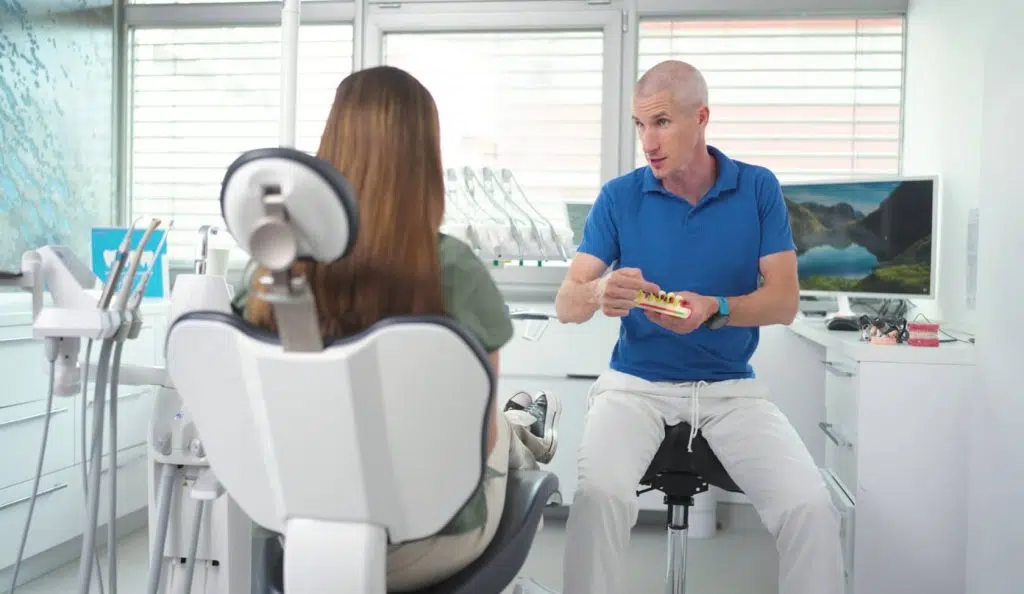
How is periodontal disease treated?
Thorough examination and gum assessment
Periodontal treatment begins with a thorough examination of the gums and surrounding tissue. Our specialists will carefully evaluate the condition of your gums, measure the depth of pockets between the gums and teeth, and assess any inflammation or periodontal pockets. This detailed diagnosis will give us insight into your condition and determine the necessary treatment measures.
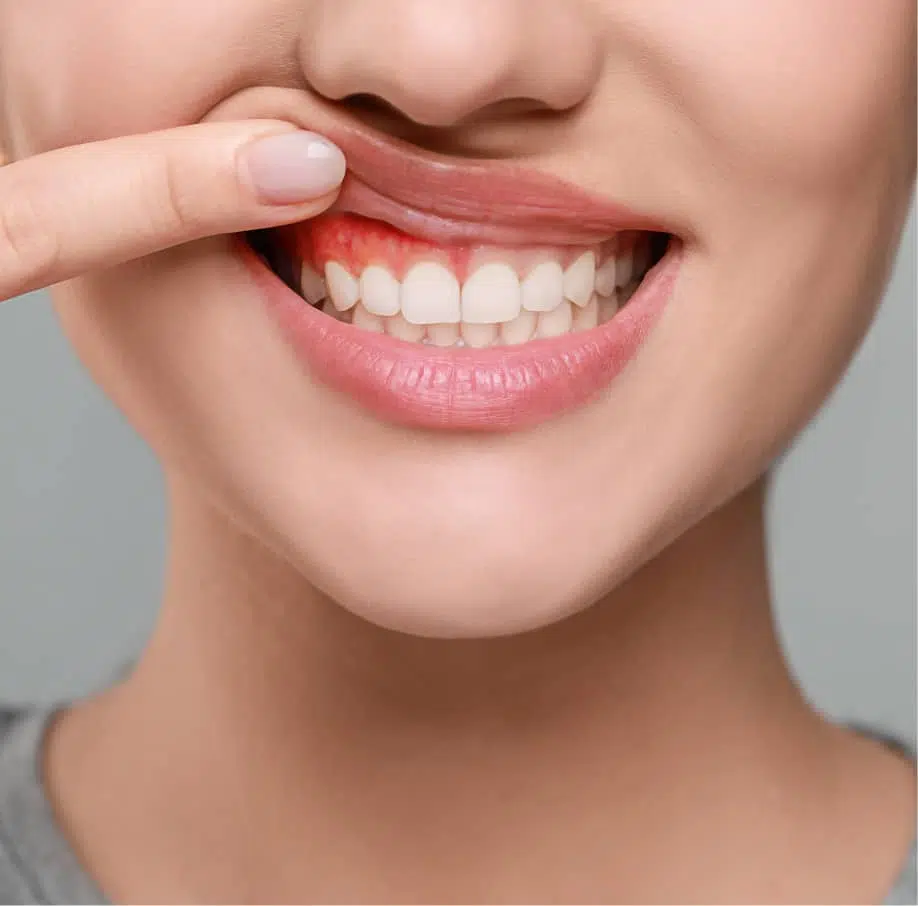
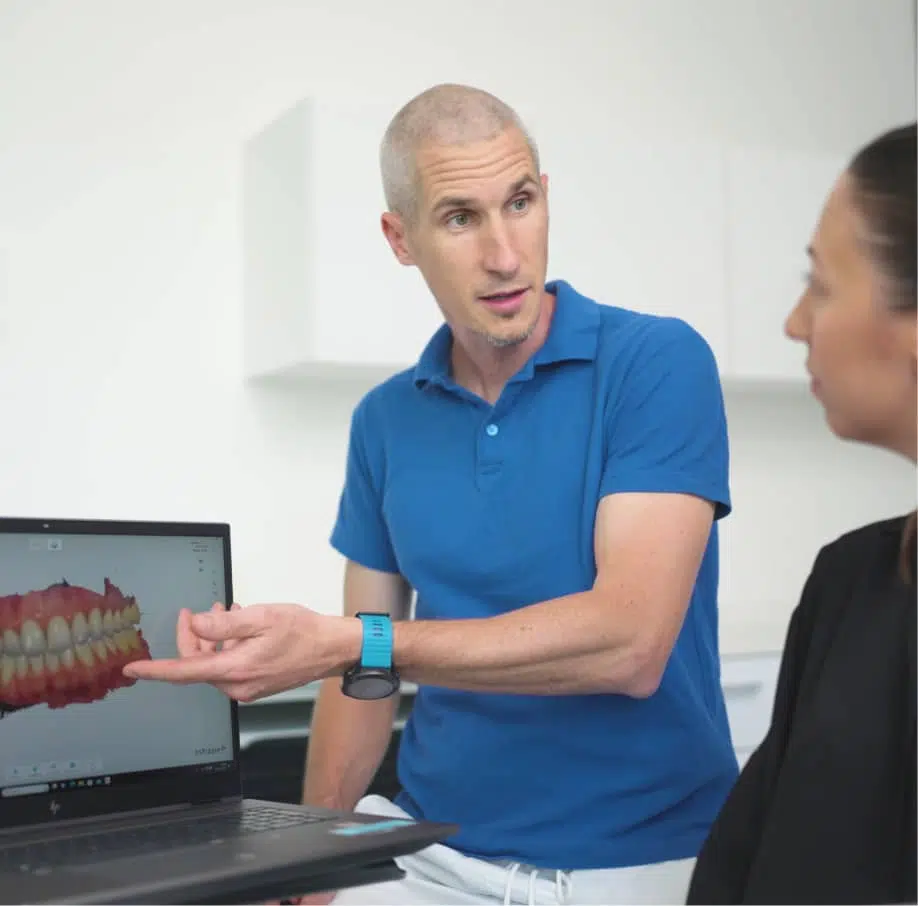
Individualized treatment plan
After diagnosis, our periodontologist will develop a customized treatment plan tailored to your specific needs. The plan will include initial treatment (cleaning of tartar and deep cleaning of the tooth roots) and possible surgical procedures to restore periodontal tissues. We will also provide appropriate instructions for home oral care.
Treatment and maintenance
Following the prepared plan, we will begin periodontal treatment. The process may involve multiple visits, depending on the severity of your condition. Our experts will perform the procedures with the utmost care to achieve optimal results. After treatment, we will also offer advice for maintaining healthy gums, including regular check-ups, proper oral hygiene, and dietary guidelines.
Experienced team of experts
Our skilled team of dentists brings extensive experience and knowledge, ensuring safe, effective, and individually tailored periodontal treatment.
Advanced technology
We use modern and non-invasive procedures, making the treatment more comfortable and shortening the recovery period.
Personalized approach
Each patient is unique, so we tailor the therapy to meet the specific needs and goals of each individual.
Follow-up and support
Our team will provide comprehensive follow-up and support throughout the entire process to achieve the desired outcome.
Patients love us
... and their new smiles! 🙂

Modri zob Nova Gorica

Modri zob Kranj

Modri zob Kranj

Modri zob Kranj

Modri zob Nova Gorica

Modri zob Nova Gorica
Answers to frequently asked questions
What factors influence the development of periodontal disease?
- genetic predisposition
- smoking
- poor oral hygiene
- improper conservative and prosthetic dental care
- age
- diet
- individual health conditions
- medications
What are the symptoms of periodontal disease?
- bleeding gums
- bad breath
- tooth mobility
- tooth loss
- change in bite
- changes in the position of one or more teeth
- gum recession and consequent sensitivity of exposed tooth roots
How often should I visit a periodontologist?
The frequency of visits depends on your gum condition. Regular check-ups are typically recommended every 3 to 6 months, but this can be adjusted based on individual needs.
Is periodontal treatment painful?
Periodontal treatment is performed under local anesthesia, so patients usually do not feel pain during the procedure. There may be slight discomfort after the procedure, which typically subsides within a few days.
How can I prevent gum problems?
Regular and proper brushing and flossing are crucial to preventing gum problems. It is also important to visit the dentist and periodontologist regularly for check-ups and cleanings.
What happens if I don't treat my periodontal problems?
Regardless of whether gum issues are mild or severe, it is important to treat them. Untreated gum inflammation can lead to more serious conditions, such as periodontal disease and tooth loss. Timely treatment is key to maintaining healthy gums and long-term oral health.
Can sage cure periodontal disease?
Although sage has proven medicinal benefits, you will need to mechanically remove the cause of the disease (dental calculus and plaque) to treat periodontal disease. A dentist or dental hygienist will clean the dental calculus, and you will need to remove plaque yourself by brushing twice daily.
Is periodontal disease curable?
Many people accept periodontal disease and let it run its course. While periodontal disease can be more severe in some cases, it can always be controlled.
If you have been diagnosed with periodontal disease, don’t wait – take action. The most you can do is maintain excellent oral hygiene, with the help of your dentist and periodontist, who will guide you and perform non-surgical and surgical procedures to eliminate the causes and consequences of the disease.
Is periodontal disease hereditary?
We can do a lot to prevent the disease ourselves, but we cannot influence all factors, as about 10% of the disease is genetic. The onset and development of the disease depend on the amount of plaque and the type of bacteria, as well as the inflammatory response of the body, which is genetically determined. In some unfortunate individuals, the inflammatory response is very severe despite relatively good oral hygiene, leading to the destruction of periodontal tissues.
Why do gums bleed?
It happens to all of us occasionally to notice blood in our saliva while brushing or even while eating hard food (crust of bread, nuts, etc.). However, if it happens spontaneously, it can be a cause for concern. You should be as concerned as you would be if any other part of your body bled daily. Bleeding is a sign of a disease. We need to improve oral hygiene and properly remove plaque, especially focusing on the cleanliness of interdental spaces. More on this in the oral hygiene section.
This is all very important, as bleeding gums are often associated with periodontal disease.
You might also be interested in...
